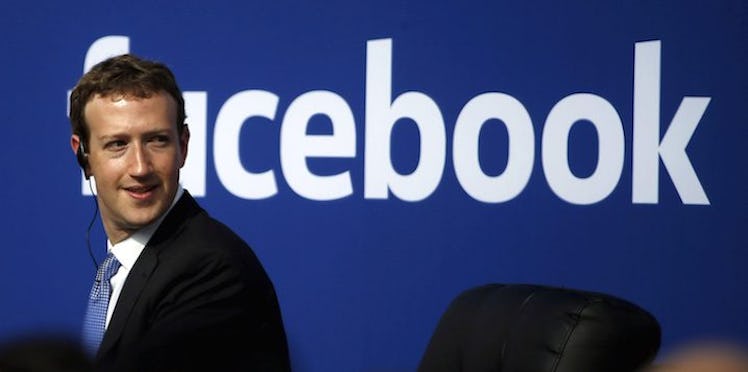
Don't Blame Facebook -- People Over 50 Are Actually Why Politics Suck Right Now
It's easy to believe social media causes people to hate each other based on their political beliefs -- but a new study says otherwise.
How many of you have cut a casual friend off after seeing a political tweet you didn't agree with? How many times have you forced yourself to not jump into a political argument on someone's Facebook status?
There's also the proliferation of fake news and rumors that spread through social media.
Because of these experiences, you might draw the conclusion that seeing all this stuff on social media is driving Republicans and Democrats further apart.
But a new paper, "Is the Internet Causing Political Polarization?," published this month in the National Bureau of Economic Research says it's not Mark Zuckerberg's fault.
It's not just you: There is a huge political divide right now.
Back in 1960, 5 percent of Republicans and Democrats said they would be upset if their children married someone from the other political party, Bloomberg noted.
But in 2010, half of Republicans and about a third of Democrats said they would be upset with that scenario.
The new paper, written by economists Levi Boxell, Matthew Gentzkow, and Jesse Shapiro, indicates a rise in polarization from 1996 to 2012.
Clearly, things have changed, and American political parties are madder at each other than in previous years.
However, the internet didn't create this widening political divide, according to the new paper.
Although there was an increase in polarization from 1996 to 2012, when the internet exploded and reached more and more American households, that polarization didn't really happen among young people, who use the internet more on average.
Polarization overall increased by .18 points in the study's counting. Among people 75 and older, it went up .38 points. Among people 40 and younger, it only went up .05.
So, sure, young people are polarizing, but not nearly as much as older people.
The paper says we're not totally in the clear, but we're still better than the olds.
"Young adults polarized through social media might in turn affect the views of older adults or might indirectly influence older adults through channels like the selection of politicians or the endogenous positioning of traditional media," the paper says.
But overall, their research "rules out what seem like the most straightforward accounts linking the growth in polarization to the internet."
The paper didn't figure out exactly what is causing the divide, but it does say it doesn't appear to be the internet.
So now we have yet another problem we can blame on baby boomers. Stop messing everything up, y'all.
Citations: Don't Blame Your Social Media Feed for the Growing Political Divide (Bloomberg), No one really knows what's causing US political polarization, but it's not the internet (Quartz)